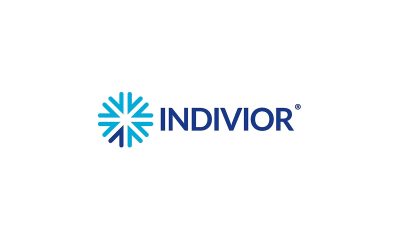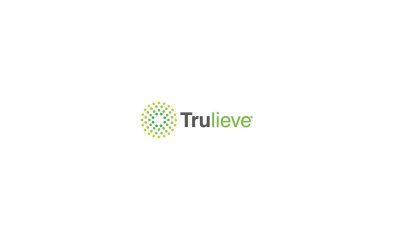The State of Consumer Spending: Millennials Driving Success of New Retail Models and Shaping Retail Trends in U.S. and U.K.
New First Insight Study Finds Millennials Using Subscription Boxes,
Flexing their Favorite Brands and Shopping In-Store/Online the Most
Internationally
AMSTERDAM, Netherlands–(BUSINESS WIRE)–As Millennials gain a reputation for being category killers across
various industries, a recent study by First Insight, a global technology
company transforming how leading retailers make product investment,
pricing and marketing decisions found when considering new retail models
and shopping behavior, Millennials are currently using subscription box
services the most with more planning to subscribe in the coming year
than other generations. Further, Millennials are the most likely
generation to “flex”, or display brands to show a personal association
with the brand, across every brand category in both the U.S. and U.K.
The State of Consumer Spending: Millennials Flexing their Retail Market
Influence in U.S. and U.K. study
points to the growing power of Millennial shoppers, as their behavior
contributes to the success and longevity of several retail models
internationally more than other generations. According to the study,
Millennials also are currently the biggest spenders both in-store and
online and are the most likely to add additional items to their carts
than other generations. The results were based on a recent study of
consumers on shopping habits, purchase behavior and influences driving
decisions in the U.S. and U.K. Millennials are defined as those born
between 1981 and 2000.
“Millennials continue to be the dominant force in retail both in the
U.S. and the United Kingdom, as their shopping habits can be a deciding
factor in what makes or breaks the success and longevity of retail
models,” said Greg Petro, CEO of First Insight. “Our study found that
where Millennials shop, how they shop and when they wear the brands they
love are in close alignment with how they define themselves. Retailers
must be able to connect with this generation through the right shopping
experiences and unique products if they want to capture the attention of
this important generation of shoppers.”
The results were announced today during the World Retail Congress in
Amsterdam. Download the report and accompanying infographic to see all
the key findings from the study here.
Key findings include:
Millennials Big Spenders in the U.S. and U.K.
According to the study, Millennials in both the U.S. (74 percent) as
well as the U.K. (58 percent) were most likely to spend more than
$50/50£ per visit in-store as well as online. This compares to 71
percent of Generation X and 65 percent of Baby Boomers in the U.S., and
42 percent of Generation X and 38 percent of Baby Boomers in the U.K.
Similarly, Millennials in the U.K. are also spending more than other
generations online, as 50 percent of those surveyed spend more than 50£
per visit, compared to 47 percent of Generation X and 33 percent of Baby
Boomers. In the U.S., Generation X shoppers are most likely to spend
more than $50 when shopping online (59 percent), more than half of
Millennials (54 percent) are spending as much, followed by Baby Boomers
(49 percent).
Millennials Most Likely Impulse Shop in Both U.S. and U.K.
In both the U.S. and U.K., by generation, Millennials have the highest
added-to-cart percentage rates in-store and online. In the U.S., 87
percent of Millennials said they sometimes or always add items to their
carts they weren’t planning to buy when shopping in-store. This compares
to 86 percent and 78 percent of Generation X and Baby Boomer
respondents, respectively. U.K. respondents mirrored these responses
closely, as 83 percent of Millennials said the same, followed by 76
percent of Generation X and 69 percent of Baby Boomers.
When shopping online, U.K. Millennials are more likely to sometimes or
always add items to their carts (83 percent) compared to the U.S. (78
percent). However, Millennials both in the U.S. and U.K. far outpace
other generations in their respective country. In the U.K., 69 percent
of Generation X and 52 percent of Baby Boomers surveyed said they add
items to their cart when shopping online. In the U.S., 74 percent of
Generation X and 53 percent of Baby Boomers said the same.
Millennials Biggest Users of Subscription Box Services in U.S., and
U.K., but Far Fewer Respondents Overall Plan to Subscribe in U.K.
Data around usage of subscription box services is similar when comparing
the U.S. to the U.K., driven primarily by Millennial adoption.
Twenty-five percent of respondents in the U.S. and 23 percent of the
respondents in the U.K. currently subscribe to subscription boxes. This
is driven primarily by Millennials in both countries, as 31 percent of
Millennials currently subscribe to subscription boxes in the U.S. versus
21 percent and 8 percent of Generation X and Baby Boomers, respectively.
In the U.K., 32 percent of Millennials versus 22 percent of Generation X
and 10 percent of Baby Boomers are currently subscribers.
However, when considering longevity of the subscription box model, data
reflects a significant difference between U.K. and U.S. shoppers. While
in the U.S., overall 32 percent of study participants intend to
subscribe in the next six months, only 13 percent of U.K. respondents
said the same. When looking at generational breakdowns, 38 percent of
Millennials, 28 percent of Generation X and 22 percent of Baby Boomers
in the U.S. plan to subscribe in the next six months. This is
significantly more than U.K. respondents, where only 18 percent of
Millennials, 9 percent of Generation X and 8 percent of Baby Boomers
plan to subscribe.
Both U.S. and U.K. Shoppers Prefer to Flex Sports Brands Over Luxury
Brands, with Millennials Flexing Most Often
The study also examined which types of brands are being “flexed” most.
Flexing is to wear or display brands to show a personal association with
the brand. This can be done to display wealth or status to make a
statement. While the assumption may be that most consumers prefer to
personally associate with luxury brands, the study found that sports
brands are actually the most popular in both the U.S. and U.K., with
Millennials the most likely to flex all brands across every category.
In both U.S. and U.K., an average of 23 percent and 24 percent percent
of study respondents overall said they are flexing sports brands, versus
19 percent in the U.S. and 23 percent in the U.K. saying the same for
heritage brands. By comparison, an average of only 17 percent of U.S.
respondents and 21 percent of U.K. respondents flex luxury brands.
The generation most likely to flex luxury brands is Millennials in both
the U.S. (19 percent) and the U.K. (22 percent), they were significantly
more likely to flex sports brands (26 percent in the US and 27 percent
in the U.K.). Further, heritage brands were also more popular with
Millennials, as 21 percent of Millennials in the U.S. and 25 percent of
Millennials in the U.K. reported flexing these brands.
Methodology
First Insight’s findings are based on the results of a U.S. consumer
study of a targeted sample of more than 1,000 respondents fielded in
February 2019, and a similar study of 565 respondents in the U.K.
fielded in April 2019. The study was completed through proprietary
sample sources among panels who participate in online surveys.
About First Insight, Inc.
First Insight is the world’s leading customer-centric merchandising
platform that empowers retailers and brands to incorporate the Voice of
the Customer into the design, pricing, planning, and marketing of new
products. Through the use of online consumer engagement, the First
Insight solution gathers real-time consumer data and applies predictive
analytic models to create actionable insights, which drive measurable
value. Retailers, manufacturers and brands use the First Insight
solution to design, select, price, plan and market the most profitable
new products for reduced markdown rates and improved sales, margins and
inventory turnover. Customers include some of world’s leading vertically
integrated brands, sporting goods companies, department stores, mass
merchant retailers and wholesalers. For further information, please
visit www.firstinsight.com.
Contacts
First Insight
Gretchen Jezerc
SVP of Marketing
[email protected]
Media Contact:
Berns Communications Group, LLC
Stacy
Berns/Michael McMullan, 212-994-4660
[email protected]
/ [email protected]

Indivior
Indivior Provides Update on Aelis Farma’s Clinical Phase 2B Study Results with AEF0117 in Participants with Cannabis Use Disorder
THIS ANNOUNCEMENT CONTAINS INSIDE INFORMATION FOR THE PURPOSES OF ARTICLE 7 OF THE MARKET ABUSE REGULATION (EU) 596/2014 (AS IT FORMS PART OF DOMESTIC LAW IN THE UK BY VIRTUE OF THE EUROPEAN UNION (WITHDRAWAL) ACT 2018).
- Primary and Secondary End Points of the Study were Not Met
- Indivior Does Not Currently Expect to Exercise AEF0117 Option
SLOUGH, United Kingdom and RICHMOND, Va., Sept. 4, 2024 /PRNewswire/ — Indivior PLC (Nasdaq/LSE: INDV) is today providing an update following Aelis Farma’s announcement of the results from its clinical Phase 2B trial with AEF01171, evaluating the efficacy and safety in treatment-seeking participants with moderate to severe Cannabis Use Disorder (CUD). The purpose of this trial was twofold: (1) to show that AEF0117 (0.1, 0.3, 1 mg once a day for 12 weeks) lowers cannabis use and (2) to determine the endpoints and optimal dosage of AEF0117 for use in future studies. In this phase 2B study, patients were treatment-seeking participants, 84% of whom had severe CUD.
The results of the study demonstrated that the primary endpoint, the proportion of participants who reduced their cannabis use to ≤1 day per week, as well as secondary endpoints measuring the proportion of participants reaching either complete abstinence or who used ≤2 day per week, were not met. Although these results are disappointing, they indicate that significant work remains to be done to understand subpopulations of patients with CUD, specifically those with severe CUD.
This clinical Phase 2B study is part of the strategic collaboration between Aelis Farma and Indivior, which includes an exclusive option for Indivior to license the global rights to AEF0117. Given the lack of separation from placebo on primary and secondary endpoints and before seeing further additional favorable clinical data, Indivior does not currently expect to exercise its option.
Important Cautionary Note Regarding Forward-Looking Statements
This news release contains certain statements that are forward-looking. Forward-looking statements include, among other things, express and implied statements regarding whether: we will be able to ultimately demonstrate the safety and efficacy of AEF0117, which is a prerequisite to filing any New Drug Application; we might ever exercise our option for AEF0117 and, if so, when; and other statements containing the words “believe,” “anticipate,” “plan,” “expect,” “intend,” “estimate,” “forecast,” “strategy,” “target,” “guidance,” “outlook,” “potential,” “project,” “priority,” “may,” “will,” “should,” “would,” “could,” “can,” “outlook,” “guidance,” the negatives thereof, and variations thereon and similar expressions. By their nature, forward-looking statements involve risks and uncertainties as they relate to events or circumstances that may or may not occur in the future.
Actual results may differ materially from those because they relate to future events. Various factors may cause differences between Indivior’s expectations and actual results, including, among others, the risks described in our most recent annual report on Form 20-F beginning on page 9 as filed with the U.S. SEC and in subsequent releases; legal and market restrictions that may limit how quickly we can repurchaser our shares; the substantial litigation and ongoing investigations to which we are or may become a party; our reliance on third parties to manufacture commercial supplies of most of our products, conduct our clinical trials and at times to collaborate on products in our pipeline; our ability to comply with legal and regulatory settlements, healthcare laws and regulations, requirements imposed by regulatory agencies and payment and reporting obligations under government pricing programs; risks related to the manufacture and distribution of our products, most of which contain controlled substances; market acceptance of our products as well as our ability to commercialize our products and compete with other market participants; competition; the uncertainties related to the development of new products, including through acquisitions, and the related regulatory approval process; our dependence on third-party payors for the reimbursement of our products and the increasing focus on pricing and competition in our industry; unintended side effects caused by the clinical study or commercial use of our products; our ability to successfully execute acquisitions, partnerships, joint ventures, dispositions or other strategic acquisitions; our ability to protect our intellectual property rights and the substantial cost of litigation or other proceedings related to intellectual property rights; the risks related to product liability claims or product recalls; the significant amount of laws and regulations that we are subject to, including due to the international nature of our business; macroeconomic trends and other global developments such as armed conflicts and pandemics; the terms of our debt instruments, changes in our credit ratings and our ability to service our indebtedness and other obligations as they come due; changes in applicable tax rate or tax rules, regulations or interpretations and our ability to realize our deferred tax assets; and volatility in our share price due to factors unrelated to our operating performance or that may result from the potential move of our primary listing to the U.S.
Forward-looking statements speak only as of the date that they are made and should be regarded solely as our current plans, estimates and beliefs. Except as required by law, we do not undertake and specifically decline any obligation to update, republish or revise forward-looking statements to reflect future events or circumstances or to reflect the occurrences of unanticipated events.
This release is being made by Kathryn Hudson, Company Secretary Indivior PLC.
About Indivior
Indivior is a global pharmaceutical company working to help change patients’ lives by developing medicines to treat substance use disorders (SUD), overdose and serious mental illnesses. Our vision is that all patients around the world will have access to evidence-based treatment for the chronic conditions and co-occurring disorders of SUD. Indivior is dedicated to transforming SUD from a global human crisis to a recognized and treated chronic disease.
Building on its global portfolio of OUD treatments, Indivior has a pipeline of product candidates designed to both expand on its heritage in this category and potentially address other chronic conditions and co-occurring disorders of SUD. Headquartered in the United States in Richmond, VA, Indivior employs over 1,000 individuals globally and its portfolio of products is available in over 30 countries worldwide. Visit www.indivior.com to learn more. Connect with Indivior on LinkedIn by visiting www.linkedin.com/company/indivior.
References:
- National Library of Medicine (U.S.) (2022, April). Effect of AEF0117 on treatment-seeking patients with cannabis use disorder (CUD) (SICA2). Identifier
NCT05322941 https://www.clinicaltrials.gov/study/NCT05322941
Logo – https://mma.prnewswire.com/media/1814851/Indivior_Logo.jpg
![]() View original content:https://www.prnewswire.co.uk/news-releases/indivior-provides-update-on-aelis-farmas-clinical-phase-2b-study-results-with-aef0117-in-participants-with-cannabis-use-disorder-302237355.html
View original content:https://www.prnewswire.co.uk/news-releases/indivior-provides-update-on-aelis-farmas-clinical-phase-2b-study-results-with-aef0117-in-participants-with-cannabis-use-disorder-302237355.html

Innocan
Innocan Pharma Announces Closing of Private Placement and Grant of Stock Options

HERZLIYA, Israel and CALGARY, Alberta, Aug. 29, 2024 /PRNewswire/ — Innocan Pharma Corporation (CSE: INNO) (FSE: IP4) (OTCQB: INNPF) (“Innocan” or the “Company”), a pioneer in the pharmaceutical and biotechnology industries, is pleased to announce that it has completed its previously announced non-brokered private placement offering of 5,025,725 units of the Company (the “Units”) at a price of C$0.22 per Unit for gross proceeds of C$1,105,659.50 (the “Offering”).
Each Unit is comprised of: (i) one (1) common share in the capital of the Company (each a “Common Share”); and (ii) one (1) common share purchase warrant (each a “Warrant”). Each Warrant will entitle the holder thereof to purchase one Common Share at a price of C$0.32 for a period of four (4) years from the date of issuance.
Innocan intends to use the proceeds of the Offering for working capital and general corporate purposes.
The securities issued to Canadian subscribers in connection with the Offering are subject to a hold period of four months and one day from the date of issuance, in accordance with applicable Canadian securities laws.
Iris Bincovich, Chief Executive Officer of the Company, stated “we are very pleased with our successful offering. I would like to extend my sincere gratitude to our investors for their unwavering support. We see this as a strong vote of confidence by both existing and new investors which demonstrates investor support of our vision and strategic direction. These new funds will provide us with additional working capital to enable us to capitalize on new opportunities and allow us to advance strongly on our growth plans.”
The Company is also pleased to announce that it has granted an aggregate of 300,000 stock options (each an “Option“) to certain consultants of the Company pursuant to the Company’s stock option plan (the “Plan“). Each Option may be exercised for one (1) common share in the capital of the Company (each, a “Share“) at a price of $0.25 per Share. The Options expire on August 27, 2029.
All Options granted vest in accordance with the following vesting schedule: (i) 1/3rd of the Options vested immediately at grant; (ii) 1/3rd of the Options will vest on February 28, 2025; and (iii) 1/3rd will vest on August 27, 2025; all subject to the terms and conditions of the Plan.
About Innocan Pharma:
Innocan is a pharmaceutical tech company that operates under two main segments: Pharmaceuticals and Consumer Wellness. In the Pharmaceuticals segment, Innocan focuses on developing innovative drug delivery platform technologies comprises with cannabinoids science, to treat various conditions to improve patients’ quality of life. This segment involves two drug delivery technologies: (i) LPT CBD-loaded liposome platform facilitating exact dosing and the prolonged and controlled release of CBD into the blood stream. The LPT delivery platform research is in the preclinical trial phase for two indications: Epilepsy and Pain Management. In the Consumer Wellness segment, Innocan develops and markets a wide portfolio of innovative and high-performance self-care products to promote a healthier lifestyle. Under this segment Innocan has established a Joint Venture by the name of BI Sky Global Ltd. that focuses developing on advanced targeted online sales. https://innocanpharma.com/
Contact Information:
For Innocan Pharma Corporation:
Iris Bincovich, CEO
+1 5162104025
+972-54-3012842
+442037699377
[email protected]
NEITHER THE CANADIAN SECURITIES EXCHANGE NOR ITS REGULATION SERVICES PROVIDER HAVE REVIEWED OR ACCEPT RESPONSIBILITY FOR THE ADEQUACY OR ACCURACY OF THIS RELEASE.
Logo – https://mma.prnewswire.com/media/2046271/4883982/Innocan_Pharma_Corporation_Logo.jpg
![]() View original content:https://www.prnewswire.co.uk/news-releases/innocan-pharma-announces-closing-of-private-placement-and-grant-of-stock-options-302234455.html
View original content:https://www.prnewswire.co.uk/news-releases/innocan-pharma-announces-closing-of-private-placement-and-grant-of-stock-options-302234455.html

Cannabis
Europe Medical Cannabis Market Forecast 2024-2032: Tilray, Aurora Cannabis, and GW Pharmaceuticals Dominate the Market Landscape
Dublin, Aug. 29, 2024 (GLOBE NEWSWIRE) — The “Europe Medical Cannabis Oil Market Size, Industry Dynamics, Opportunity Analysis and Forecast 2024-2032.” report has been added to ResearchAndMarkets.com’s offering.
The Europe Medical Cannabis Oil market is poised for significant growth, projected to escalate from US$ 0.91 billion in 2023 to US$ 2.40 billion by 2032, advancing at a CAGR of 12.08%. In this comprehensive research report, the market is analyzed by:
- Derivatives;
- Source;
- Application;
- Route of Administration;
- End-user;
- Distribution Channel; and
- Country.
Market Highlights Identified in the Report
- Progressive legalization across Europe is creating a favorable regulatory environment, enhancing market expansion for medical cannabis oil products.
- Germany leads the market with a robust infrastructure and supportive regulations, while other countries like the UK, Italy, and Spain show significant growth potential based on evolving regulatory landscapes and market dynamics.
- Key players such as Tilray, Aurora Cannabis Inc., and GW Pharmaceuticals dominate the market, emphasizing research, strategic partnerships, and innovation to maintain competitive edge amidst evolving industry dynamics.
The medical cannabis oil market has experienced substantial growth as legalization and acceptance of cannabis-based treatments expand globally. Cannabis oil, derived from the cannabis plant through extraction methods, contains cannabinoids such as THC and CBD, known for their therapeutic properties. Increasing recognition of cannabis oil’s potential in alleviating symptoms of various medical conditions, including chronic pain, epilepsy, and anxiety disorders, has driven its adoption in medical settings.
Governments in several countries are progressively legalizing medical cannabis, creating a conducive regulatory environment for market expansion. Additionally, growing consumer awareness about alternative and natural therapies has fueled the demand for cannabis oil products. The market is characterized by diverse product offerings, including full-spectrum and CBD-isolate oils, catering to different therapeutic needs and preferences.
Despite regulatory challenges and stigma associated with cannabis, the medical cannabis oil market continues to evolve, driven by ongoing research, favorable legislative changes, and shifting attitudes toward cannabis-based therapies in healthcare.
Regional Insights
Germany is likely to maintain its leadership position in the European medical cannabis oil market due to its established infrastructure, supportive regulations, and strong healthcare system. Germany legalized medical cannabis in 2017, giving the market a head start compared to many other European countries. This established infrastructure and experience position Germany as a leader in the field. As awareness and acceptance of medical cannabis increase, the number of patients seeking treatment in Germany is steadily rising. This fuels market growth and incentivizes further investment in research and development.
Germany’s regulatory framework for medical cannabis is considered relatively patient-friendly compared to some other European countries. This facilitates access for patients with qualifying conditions. The UK legalized medical cannabis in 2018 and is experiencing an increase in patient access programs. This, coupled with ongoing research, could lead to significant market growth. Italy legalized medical cannabis in 2006 but has faced challenges with availability. As regulations become more streamlined and patient access expands, the Italian market holds significant growth potential. Spain has a well-established medical cannabis industry with a focus on domestic production. As regulations evolve and export opportunities increase, the Spanish market could see a boost.
Competitive Landscape
The Medical Cannabis Oil market is characterized by a vigorous competitive landscape, with prominent entities like Tilray, Aurora Cannabis Inc., GW Pharmaceuticals, Almiral, Bedrocan, and others at the forefront, collectively accounting for approximately 41 % of the overall market share. This competitive milieu is fueled by their intensive efforts in research and development as well as strategic partnerships and collaborations, underscoring their commitment to solidifying market presence and diversifying their offerings.
The primary competitive factors include pricing, product caliber, and technological innovation. As the Medical Cannabis Oil industry continues to expand, the competitive fervor among these key players is anticipated to intensify. The impetus for ongoing innovation and alignment with evolving customer preferences and stringent regulations is high. The industry’s fluidity anticipates an uptick in novel innovations and strategic growth tactics from these leading corporations, which in turn propels the sector’s comprehensive growth and transformation.
Key Topics Covered
Chapter 1. Research Framework
Chapter 2. Research Methodology
Chapter 3. Executive Summary: Europe Medical Cannabis Oil Market
Chapter 4. Europe Medical Cannabis Oil Market Overview
Chapter 5. Europe Medical Cannabis Oil Market Analysis, by Derivatives
Chapter 6. Europe Medical Cannabis Oil Market Analysis, by Source
Chapter 7. Europe Medical Cannabis Oil Market Analysis, by Application
Chapter 8. Europe Medical Cannabis Oil Market Analysis, by Route of Administration
Chapter 9. Europe Medical Cannabis Oil Market Analysis, by End-user
Chapter 10. Europe Medical Cannabis Oil Market Analysis, by Distribution Channel
Chapter 11. Europe Medical Cannabis Oil Market Analysis, by Country
Chapter 12. The UK Medical Cannabis Oil Market Analysis
Chapter 13. Germany Medical Cannabis Oil Market Analysis
Chapter 14. The Netherlands Medical Cannabis Oil Market Analysis
Chapter 15. Italy Medical Cannabis Oil Market Analysis
Chapter 16. Spain Medical Cannabis Oil Market Analysis
Chapter 17. Poland Medical Cannabis Oil Market Analysis
Chapter 18. Rest of Europe Medical Cannabis Oil Market Analysis
Chapter 19. Company Profiles (Company Overview, Financial Matrix, Key Product Landscape, Key Personnel, Key Competitors, Contact Address, and Business Strategy Outlook)
A selection of companies mentioned in this report includes, but is not limited to:
- Aurora Cannabis Inc.
- Bedrocan
- Biocann
- BIOTA Biosciences LLC
- Cannamedical
- Mary Jane CBD
- Sanity Group GmbH
- Tilray
- Valcon Medical
For more information about this report visit https://www.researchandmarkets.com/r/dh7q46
About ResearchAndMarkets.com
ResearchAndMarkets.com is the world’s leading source for international market research reports and market data. We provide you with the latest data on international and regional markets, key industries, the top companies, new products and the latest trends.

-

 Cannabis2 weeks ago
Cannabis2 weeks agoSilly Nice Announces Launch of New 1G 510 Vape Cartridge and 2G All-In-One Vape in New York Dispensaries This September
-

 Cannabis2 weeks ago
Cannabis2 weeks agoCannabis Cultivation Market – Global Food Additives, Oils, Tinctures, Cannabis Indica, Cannabis Sativa Forecast 2024-2030
-

 Cannabis1 week ago
Cannabis1 week agoEurope Medical Cannabis Market Forecast 2024-2032: Tilray, Aurora Cannabis, and GW Pharmaceuticals Dominate the Market Landscape
-

 Cannabis2 weeks ago
Cannabis2 weeks agoGlobal Hemp Based Food Market Size To Worth USD 4.87 Billion By 2033 | CAGR Of 13.12%
-

 Innocan1 week ago
Innocan1 week agoInnocan Pharma Announces Closing of Private Placement and Grant of Stock Options
-
Indivior4 days ago
Indivior Provides Update on Aelis Farma’s Clinical Phase 2B Study Results with AEF0117 in Participants with Cannabis Use Disorder



















